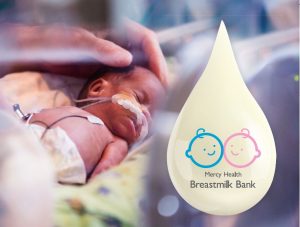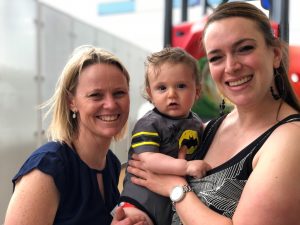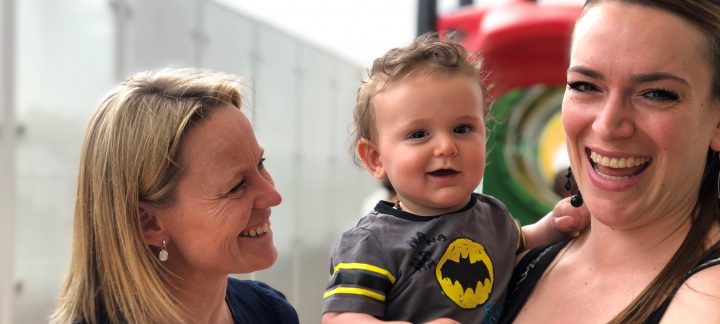This year — after three years of planning — The Mercy Health Breastmilk Bank launched satellite sites at Monash Children’s Hospital, The Royal Children’s Hospital and The Royal Women’s Hospital. This important collaboration will provide access to pasteurised donor milk for sick and very premature infants whose own mothers have difficulty supplying sufficient breastmilk.
Based at Mercy Hospital for Women in Heidelberg, Mercy Health Breastmilk Bank is the only one of its kind in Victoria. It was established in 2011, the brainchild of Dr Gillian Opie, who is now its Head of Unit, and Mercy Health O’Connell Family Centre Director of Nursing Kerri McEgan, who worked tirelessly in the first years to ensure its success. It provides vulnerable infants — those who are sick or premature in the Neonatal Intensive Care Unit (NICU) or Special Care Nursery (SCN) — with safe, screened and pasteurised donor milk.
In the eight years since it was established, the Mercy Health Breastmilk Bank has processed more than 3,000 litres of donated breastmilk and fed more than 300 sick or very premature babies.

New mum Cristiana Blasetti had seen a number of her friends’ babies born prematurely and spend time in the NICU. Their experience moved her to donate her excess breastmilk after the birth of her second child, Erico, earlier this year. “I know that if I was a mother with a premature or sick baby I couldn’t feed, having the milk donations would be one less thing to stress about. It’s that one small difference that just might help someone,” Cristiana says.
Breastmilk, which is rich in unique, human-specific nutrients and immunological properties, is especially important for sick or preterm babies. The World Health Organization recommends that mothers provide only breastmilk to their infants in the first six months of life.

L-R: Mercy Health Breastmilk Bank Manager Chelsea Webster, baby Erico and his mother, breastmilk donor, Cristiana Blasetti.
Now, with the satellite sites on board, carefully screened donors from any of the four hospitals can deliver their breastmilk to the Mercy Health Breastmilk Bank at Mercy Hospital for Women in Heidelberg or one of the satellite sites. The milk is held in a deepfreeze before being transported to the Breastmilk Bank in Heidelberg where it is tested and pasteurised. It is then distributed back to babies at the satellite sites according to need with medical and parental consent.
Since the satellite sites came on board, supply has increased significantly. Mercy Health Breastmilk Bank Manager Chelsea Webster says, “We have 22 active donors at the moment and are now receiving donations daily, which is fantastic.”
It’s rewarding to know that my milk is going to babies who need it the most.
“In October, we received 48.5 litres and we are meeting demand. We have nine recipients at the moment (at other hospitals) and are allocating over six litres a week,” Chelsea says.
For more information on how the Mercy Health Breastmilk Bank provides pasteurised donor milk to vulnerable babies, visit mercyhealthbreastmilkbank.com.au
Last reviewed December 16, 2019.



